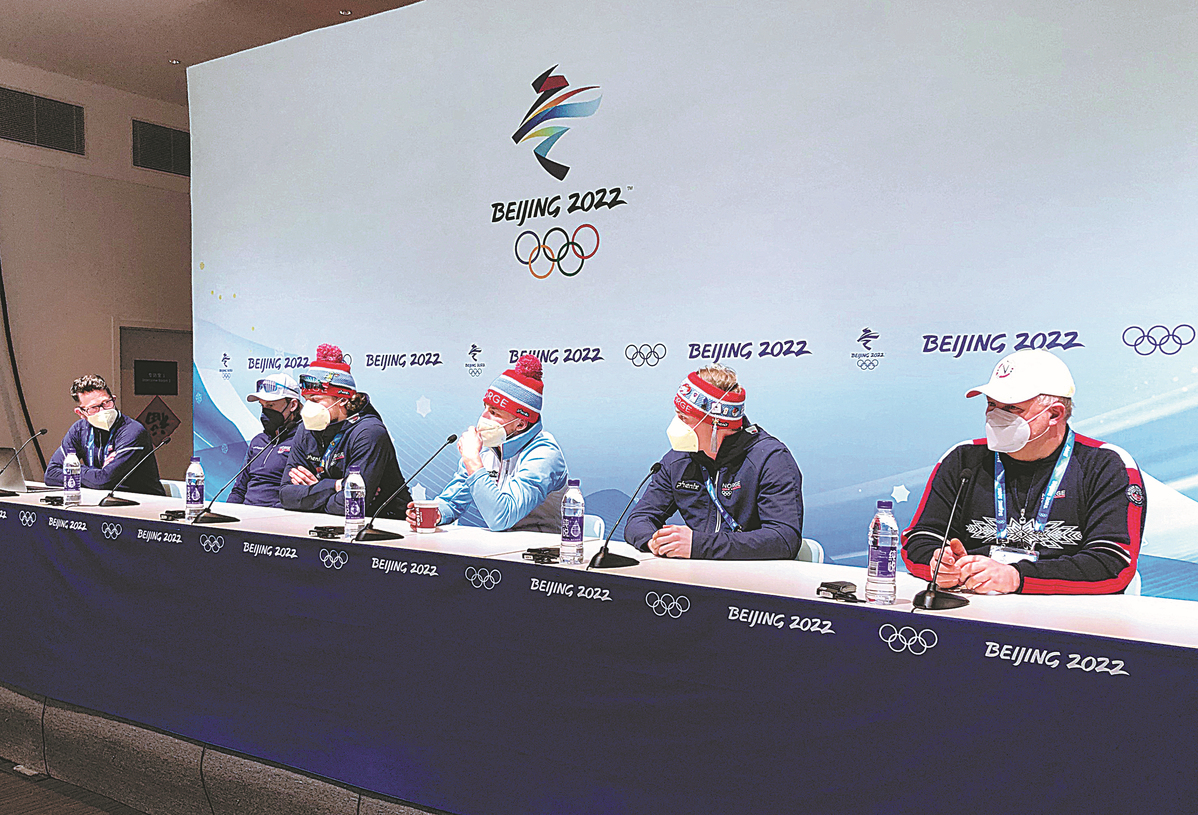Getting the message across


As introduced by Mei, they offer simultaneous interpretation services for all Olympic news conferences, including those held in the Main Media Center and those after competitions at all the venues, including in Zhangjiakou and Yanqing.
The translations are also inputted into the media center's system for access for reporters.
Instead of attending on site, accredited media can choose to watch the news conferences online in real time, which also reduces the risks of the spread of COVID-19, Mei said.
"Through such a remote center, all the interpreters can be arranged together instead of having certain groups serving certain venues, which saves a lot in terms of human resources," Mei said.
"It also saves the time of interpreters traveling among all the venues, which feeds into the measures for reducing carbon emissions. We would like to make it an Olympic legacy as well."
Chief interpreter Alexandre Ponomarev said the translation services are an updated version to those provided for the Tokyo Games and have received positive feedback from all clients, such as the International Olympic Committee and other stakeholders.
"I'm really pleased to say that the feedback we have received so far from the various stakeholders here at the Games has been overwhelmingly positive," said Ponomarev, who first served the Olympic Games in 2008 in Beijing and has become the chief interpreter for the Olympics since the Rio Games in 2016.























